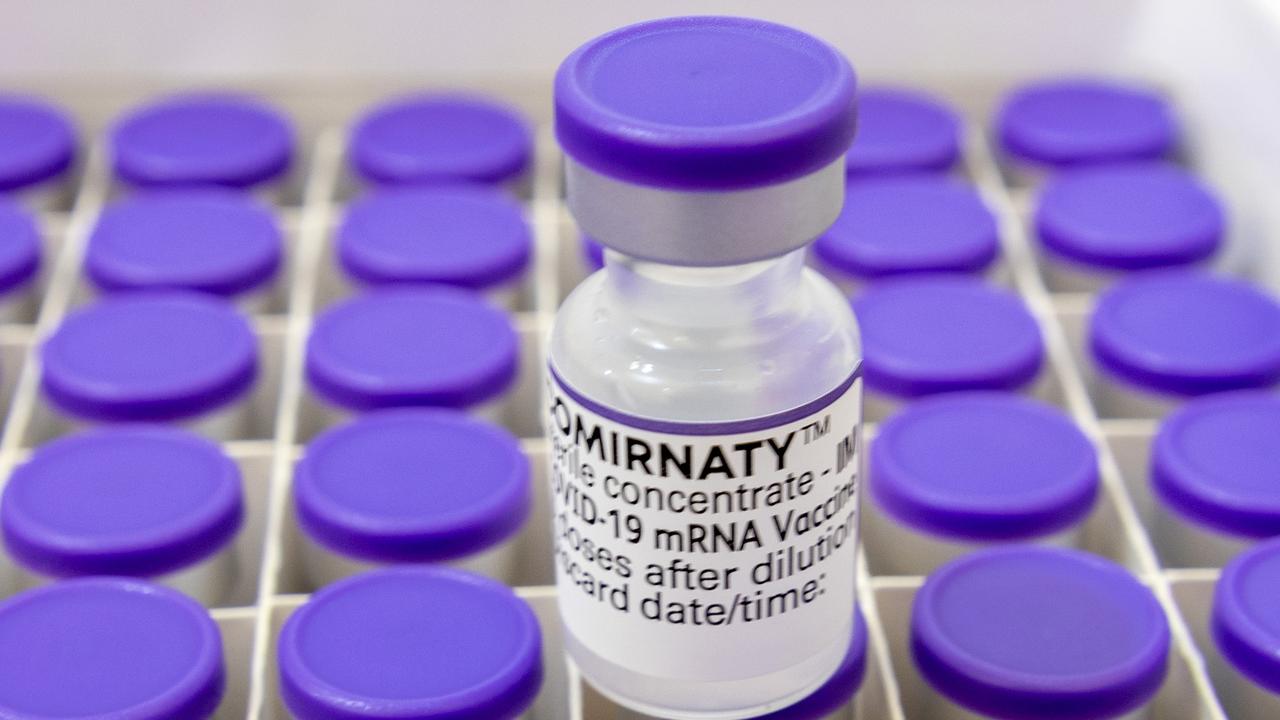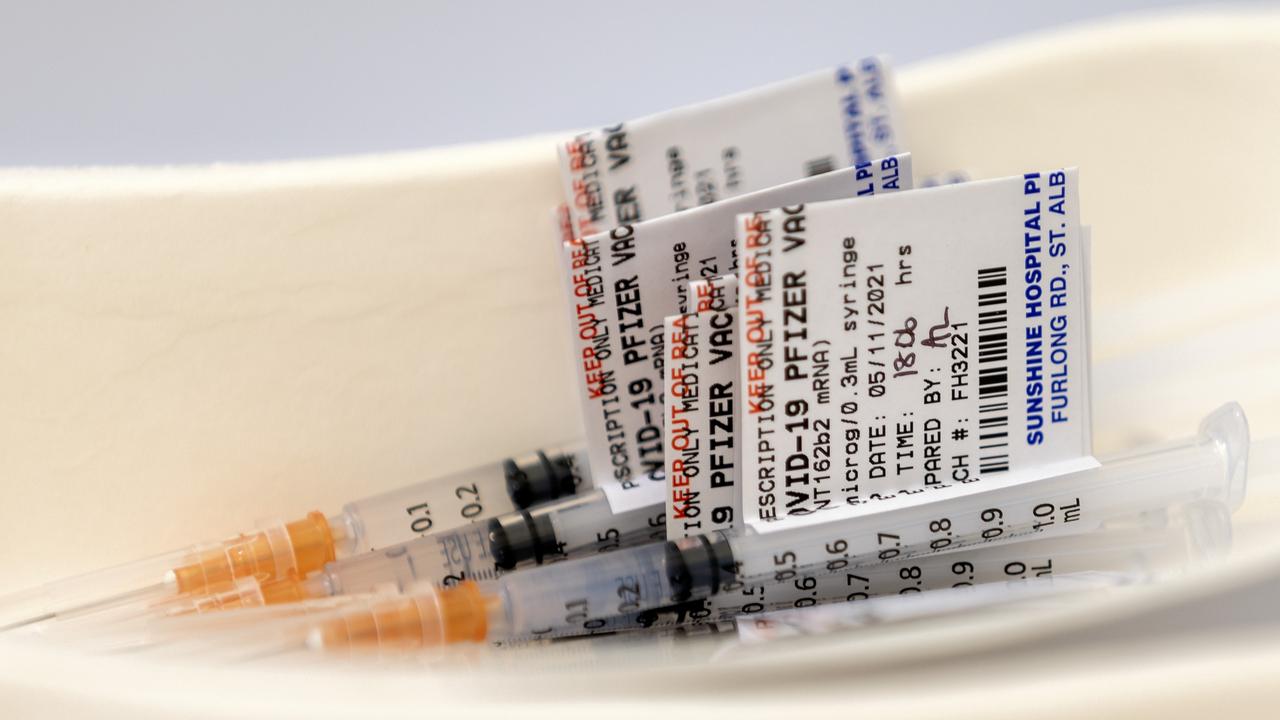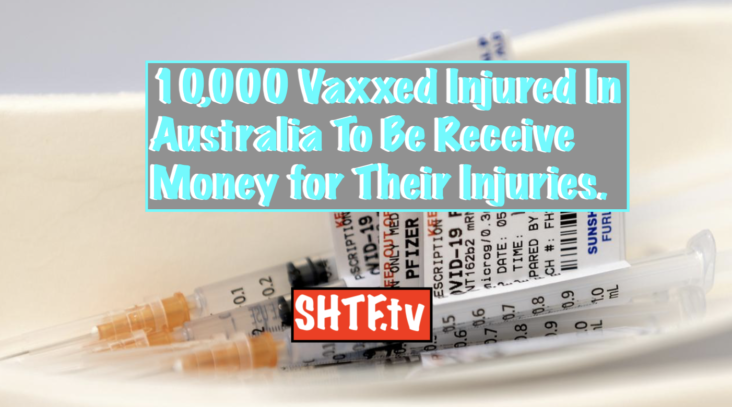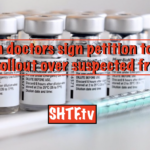
At least 10,000 Australians are to planning to claim up to $20,000 under the federal government’s no-fault indemnity scheme for rare coronavirus vaccine injuries.
The government is currently in the process of developing the claims scheme for people who suffer a moderate to significant impact following an adverse reaction to a TGA approved Covid-19 vaccine.
The aim is to create a streamlined process to reimburse or compensate eligible people for their injuries without the need for complex legal proceedings.
The scheme will pay out between $5000 and $20,000 due to administration of a Covid-19 vaccine or due to an adverse event that is considered to be caused by a Covid-19 vaccination.
More than 10,000 people have registered their interest to make a claim since registration opened on the federal health department’s website in September, official data shows.
Shine Lawyers’ head of medical negligence Clare Eves told news.com.au that although the number of Australians who have adverse reactions to Covid vaccines is tiny, the impact has been huge on those affected – and there are still huge questions that need answering about the government’s scheme.

There have been 37.8 million doses of Covid vaccines administered to 18.4 million people in Australia. Picture: David Geraghty/NCA NewsWire
“The percentage of people having a quite significant adverse reaction is really small,” she said. “But for those people who are actually the ones suffering that adverse reaction, the outcome is quite devastating for them.
“So it’s not just some niggling ongoing symptoms. Some of these reactions have been clots, major strokes, amputations, major cardiac problems, being on oxygen, having severe headaches that are debilitating and (being) unable to return to work.
“So even though it’s a really small percentage of people who we are seeing suffering a serious adverse reaction, the impact to them individually is actually very, very significant.”
The Therapeutic Goods Administration recorded 78,880 adverse events linked to Covid-19 vaccination, representing a tiny minority (0.21 per cent) of the 37.8 million doses administered to 18.4 million people, by November 7.
The vast majority of those 78,000 adverse events were mild side effects, including headaches, nausea and sore arms.
However, the government’s claims scheme is for Australians who have suffered more serious complications.
For claims between $5000 and $20,000, claimants need to have been hospitalised for at least one night, will need to nominate they are seeking less than $20,000 and provide applicable evidence of the nature of the injury and medical documentation of its likely relationship to a Covid-19 vaccination.
The government says the evidence requirements for claims of $20,000 and over, including death, are still being developed and will be advised as part of additional information on the scheme in the future.

Shine Lawyers national medical negligence manager Clare Eves. Picture: Ryan Young
However, the government has not revealed what standard of proof will be required to establish that the person’s injury was caused by the vaccine under its current scheme.
Ms Eves said many people who have suffered serious adverse reactions she has spoken to are not really sure what avenue is available to them. All they can do for the moment is register their interest with the government scheme online.
“So we’ve had a lot of people contact us, where we can’t help them with any legal recourse, but we’d refer them to the scheme,” she said. “We’ve touched in with a few of those and said, ‘How’s it going?’
“And we’ve had an acknowledgment that their interest has been registered, but nothing has been taken past that point yet. It’s not clear how long it’s going to take.
“Whether there’s going to be a lot of evidentiary hurdles to get over, whether it’s going to be simple and what kind of payments are going to be made based on what evidence at the moment.”
She said there’s not been any suggestion of any negligent or misleading conduct or that the vaccine was not fit for its purpose.
“There’s no suggestion of the government or manufacturers or medical administrators being pursued for a claim because there’s no fault component,” she said. “And I think we have to look at that as well.
“That there are these inherent risks – as long as people are warned of those risks and that is offset by the potential benefit of reducing your risk of contracting Covid-19. So there’s all these other considerations at play.”
She said there are also big questions about what will happen for people who were seeking more than $20,000, or for people who have lost a loved one.
Nine people have died after experiencing an adverse reaction to a Covid-19 vaccine in Australia.

Prepared doses of Pfizer vaccine at the vaccination Hub at the Melbourne Showgrounds. Picture: David Geraghty/NCA NewsWire
“That loved one might be might have been the main income earner in the family,” said Ms Eves. “So how are they going to assess those claims? And that’s really something that there hasn’t been a lot of information about.
“When we talked about the UK scheme. They give a lump sum capped at £120,000 ($218,901), and that’s how they address those kinds of more major injury components.
“It’s really unclear what’s going to happen in Australia. But obviously, if you are fit and healthy in your early 30s, and you have something like the Moderna or Pfizer, and you get a significant cardiac problem that could be the next 30 to 40 years of income eroded.
“So it’s going to be very interesting to look at what kind of caps they’re going to put on this and what kind of figures are going to be in that next tranche of the scheme.”
She said there is also the separate issue of people, having had an adverse reaction to the vaccine, not getting the right treatment in hospital.
“So a number of people, when they may have attended a hospital after having the vaccine and they’ve got some classic symptoms of a stroke and sent home and then have a major stroke, then you may be able to claim for that additional damage, but it’s still a little bit separate to the vaccine itself,” she said.
“It just means the hospital probably should have been a bit more aware that there could be a real chance of you being the one where the risk is eventuating. And should they’ve have done more investigations before sending you home.”
Adverse reactions to be covered by the government’s scheme are based on TGA advice and will include heart conditions myocarditis and pericarditis, the blood clotting disorder thrombosis with thrombocytopenia, the rare neurological condition Guillain-Barré syndrome and immune thrombocytopenia.
The government stresses that the risks associated with contracting Covid-19 are far greater than the small risk associated with the vaccines.
It says getting vaccinated now has many benefits, including protecting yourself against severe illness and death from Covid-19, preventing complications such as ‘long Covid’ and protecting people who can’t be vaccinated due to medical conditions.
At least 10,000 Australians are to planning to claim up to $20,000 under the federal government’s no-fault indemnity scheme for rare coronavirus vaccine injuries.
The government is currently in the process of developing the claims scheme for people who suffer a moderate to significant impact following an adverse reaction to a TGA approved Covid-19 vaccine.
The aim is to create a streamlined process to reimburse or compensate eligible people for their injuries without the need for complex legal proceedings.
The scheme will pay out between $5000 and $20,000 due to administration of a Covid-19 vaccine or due to an adverse event that is considered to be caused by a Covid-19 vaccination.
More than 10,000 people have registered their interest to make a claim since registration opened on the federal health department’s website in September, official data shows.
Shine Lawyers’ head of medical negligence Clare Eves told news.com.au that although the number of Australians who have adverse reactions to Covid vaccines is tiny, the impact has been huge on those affected – and there are still huge questions that need answering about the government’s scheme.
“The percentage of people having a quite significant adverse reaction is really small,” she said. “But for those people who are actually the ones suffering that adverse reaction, the outcome is quite devastating for them.
“So it’s not just some niggling ongoing symptoms. Some of these reactions have been clots, major strokes, amputations, major cardiac problems, being on oxygen, having severe headaches that are debilitating and (being) unable to return to work.
“So even though it’s a really small percentage of people who we are seeing suffering a serious adverse reaction, the impact to them individually is actually very, very significant.”
The Therapeutic Goods Administration recorded 78,880 adverse events linked to Covid-19 vaccination, representing a tiny minority (0.21 per cent) of the 37.8 million doses administered to 18.4 million people, by November 7.
The vast majority of those 78,000 adverse events were mild side effects, including headaches, nausea and sore arms.
However, the government’s claims scheme is for Australians who have suffered more serious complications.
For claims between $5000 and $20,000, claimants need to have been hospitalised for at least one night, will need to nominate they are seeking less than $20,000 and provide applicable evidence of the nature of the injury and medical documentation of its likely relationship to a Covid-19 vaccination.
The government says the evidence requirements for claims of $20,000 and over, including death, are still being developed and will be advised as part of additional information on the scheme in the future.

Shine Lawyers national medical negligence manager Clare Eves. Picture: Ryan Young
However, the government has not revealed what standard of proof will be required to establish that the person’s injury was caused by the vaccine under its current scheme.
Ms Eves said many people who have suffered serious adverse reactions she has spoken to are not really sure what avenue is available to them. All they can do for the moment is register their interest with the government scheme online.
“So we’ve had a lot of people contact us, where we can’t help them with any legal recourse, but we’d refer them to the scheme,” she said. “We’ve touched in with a few of those and said, ‘How’s it going?’
“And we’ve had an acknowledgment that their interest has been registered, but nothing has been taken past that point yet. It’s not clear how long it’s going to take.
“Whether there’s going to be a lot of evidentiary hurdles to get over, whether it’s going to be simple and what kind of payments are going to be made based on what evidence at the moment.”
She said there’s not been any suggestion of any negligent or misleading conduct or that the vaccine was not fit for its purpose.
“There’s no suggestion of the government or manufacturers or medical administrators being pursued for a claim because there’s no fault component,” she said. “And I think we have to look at that as well.
“That there are these inherent risks – as long as people are warned of those risks and that is offset by the potential benefit of reducing your risk of contracting Covid-19. So there’s all these other considerations at play.”
She said there are also big questions about what will happen for people who were seeking more than $20,000, or for people who have lost a loved one.
Nine people have died after experiencing an adverse reaction to a Covid-19 vaccine in Australia.
“That loved one might be might have been the main income earner in the family,” said Ms Eves. “So how are they going to assess those claims? And that’s really something that there hasn’t been a lot of information about.
“When we talked about the UK scheme. They give a lump sum capped at £120,000 ($218,901), and that’s how they address those kinds of more major injury components.
“It’s really unclear what’s going to happen in Australia. But obviously, if you are fit and healthy in your early 30s, and you have something like the Moderna or Pfizer, and you get a significant cardiac problem that could be the next 30 to 40 years of income eroded.
“So it’s going to be very interesting to look at what kind of caps they’re going to put on this and what kind of figures are going to be in that next tranche of the scheme.”
She said there is also the separate issue of people, having had an adverse reaction to the vaccine, not getting the right treatment in hospital.

“So a number of people, when they may have attended a hospital after having the vaccine and they’ve got some classic symptoms of a stroke and sent home and then have a major stroke, then you may be able to claim for that additional damage, but it’s still a little bit separate to the vaccine itself,” she said.
“It just means the hospital probably should have been a bit more aware that there could be a real chance of you being the one where the risk is eventuating. And should they’ve have done more investigations before sending you home.”
Adverse reactions to be covered by the government’s scheme are based on TGA advice and will include heart conditions myocarditis and pericarditis, the blood clotting disorder thrombosis with thrombocytopenia, the rare neurological condition Guillain-Barré syndrome and immune thrombocytopenia.
The government stresses that the risks associated with contracting Covid-19 are far greater than the small risk associated with the vaccines.
It says getting vaccinated now has many benefits, including protecting yourself against severe illness and death from Covid-19, preventing complications such as ‘long Covid’ and protecting people who can’t be vaccinated due to medical conditions.
Services Australia is building an online portal, to be launched next month, for uncapped claims above $5000 from those who suffered injury and loss of income due to their COVID-19 vaccine, with compensation for medical costs and lost wages to be paid by the government.
Shine Lawyers head of medical negligence Clare Eves said the amount of the claims “could be really significant” for people who experienced rare but serious adverse vaccine reactions, such as stroke and inflammation of the heart.
“Adverse events, even though they happen to a tiny proportion of people, for the people it does impact it’s really quite devastating,” Ms Eves said.
The Therapeutic Goods Administration recorded 78,880 adverse events linked to COVID-19 vaccination, representing a small minority (0.21 per cent) of the 37.8 million doses administered to 18.4 million people, by November 7. The vast majority of those 78,000 adverse events were mild side effects, including headache, nausea and sore arms.
More than 10,000 people have registered their interest to make a claim since registration opened on the federal health department’s website in September, official data shows, meaning it would cost at least $50 million if each claim is approved.
Ms Eves said significant brain or cardiac injury could result in a claim in the hundreds of thousands or even millions of dollars.
“When you’re dealing with something like a stroke, you could have someone who is a truck driver and can’t go back to work, or an accountant who can’t process big numbers anymore,” she said.
“In severe cases, people go on to have multiple strokes and may need 24-hour care.”
People who experienced a moderate to significant adverse reaction resulting in a hospital stay of at least one night are covered by the government’s vaccine indemnity scheme.

The government is facing more than 10,000 compensation claims for COVID-19 vaccine injuries.CREDIT:GETTY
Claimants seeking $20,000 or less will need to submit evidence of their injury and its relationship to COVID-19 vaccination, medical costs and lost wages.
Claims for more than $20,000, including death claims, will be assessed by a panel of independent legal experts and compensation paid based on their recommendations.
The government has not revealed what standard of proof will be required to establish that the person’s injury was caused by the vaccine.
Nine people, most of them elderly, have died after experiencing an adverse reaction to a COVID-19 vaccine in Australia.
Ms Eves said Shine Lawyers had received an influx of calls from people wanting to pursue legal action for vaccine side effects, referring most to the government’s no-fault scheme. Shine is also representing several litigants who fall outside the scheme.
Funding for the vaccine indemnity scheme was not included in the 2021-22 budget. It is expected to be funded in the government’s mid-year economic and fiscal outlook.
Adverse reactions to be covered are based on TGA advice and will include heart conditions myocarditis and pericarditis, the blood clotting disorder thrombosis with thrombocytopenia, the rare neurological condition Guillain-Barré syndrome and immune thrombocytopenia.



